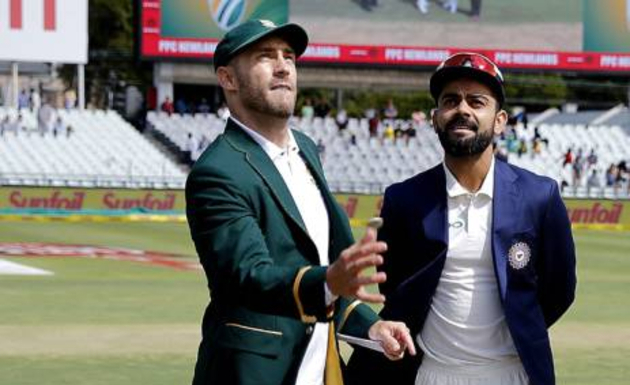In this realm of excessive competition, where TRPs and viewership define contours of competition nearly as much as fans’ interest in a sport- mostly all global sports are embracing change. And change, lest it is forgotten, is the only constant.
Tennis is running promotional events all over the world. Motorsports are attempting to deep-dive in the realm of electric racing and hence, you have Formula-E.
Is banning the toss a sound measure to improve cricket?
Cricket too, in a bid to find a global foothold, has been working for a while to reinvigorate its outfit. Hence, you had the initiation of what began as a makeshift idea: the T20s.
Although, it is now a becoming a behemoth that’s causing a near demise of the classic five-day format.
But, it seems, so stifling has been the suddenness of change in Cricket, arguably through the growth of T20s (and the decline of Tests), that radical moves, it appears, are the only way to put a context to things.
How else would one justify the idea of banning the toss, hitherto, the cursory and defining step right before the start of a contest, regardless of format?
ICC’s sudden move clean bowls world cricket
While the move to get rid of the toss before a cricket game may be veiled in the contour of inducing a change in the current narrative, it’s exasperating, if not an irrationally bold move to accept.
Not even in the wildest of dreams could one have imagined that there might be a day where Cricket would decide to discontinue the toss.
It’s a move so shocking and unreal that it could be likened to asking a Londoner, rather an Englishman to not be inquisitive about Prince Harry or Meghan Markle’s wedding. In layman lingo, it’s the idea of not having butter put on your bread, a morning ritual whose ubiquity defines the story of every household.
What’s the exact logic behind banning the toss?
So even as the ICC has offered logic in the guise of this ‘shock doctrine’- borrowing a phrase from Naomi Klein- stating, a visiting captain should have the favour to decide whether to ball or bat, you can’t help but resonate with the feeling of the former Test captains. All of whom, it appears, have been flabbergasted and lost for words at cricket’s premier governing body’s decision.
Just why would you do that? Are we yet to find a published mainstream book without an introduction or table of contents?
What exactly is cricket trying to achieve by actually placing an undue advantage to a visiting captain- who gets paid well enough, as does his team just to state the obvious- is a mystery that Sherlock cannot solve despite seeking help from MI6, it ought to be said?
But what is certain is that, at least, in the coming few days, ICC’s latest shocker might pave way for a new, and hopefully incessant debate over the new rule. What is most contradictory to a glaring subject of our times, one that can be called a dominant discourse (pardon the cliche) is that cricket is seemingly walking away from upholding the spirit of equality.
Wondering how? No rocket science, actually.
What are the biggies saying?
Wasn’t the practice of the toss before every single contest a fair measure to equip both captains with an equal opportunity to dominate proceedings? When you abolish the standard-bearer of fairness, you instantly dislocate a major ligament in cricket’s structure that may suddenly lead to further knee-jerk reactions.
How on earth can you expect a fair contest between the bat and ball with the visiting captain in a series calling the opening shots is something only Michael Holding, Ponting and Steve Waugh can explain, given their precocious and sound minds. The commoners can only reel with a slight discomfort if not scoff with agony with ICC’s latest move to ‘revive’ cricket.

